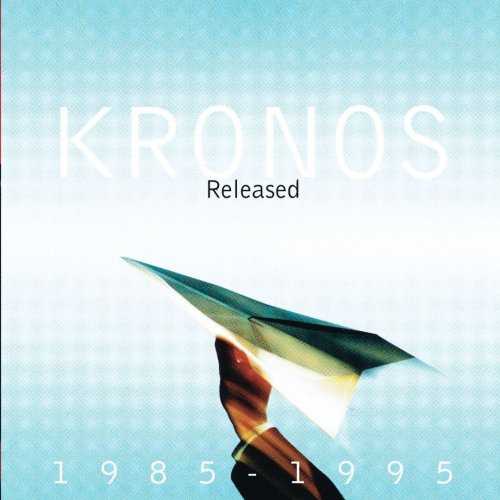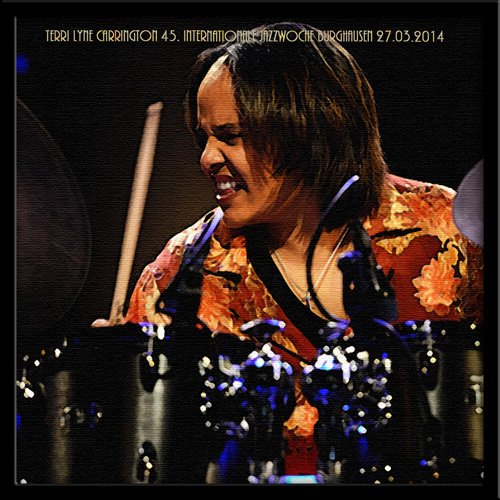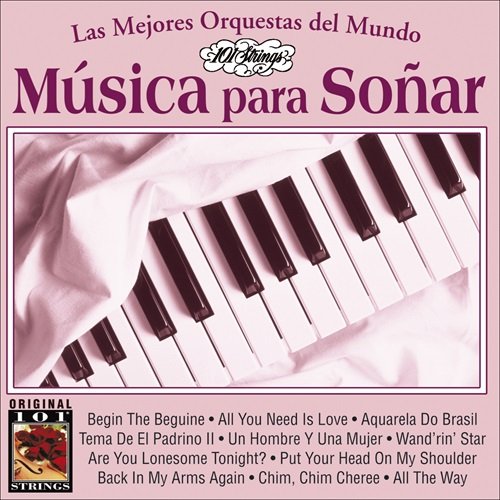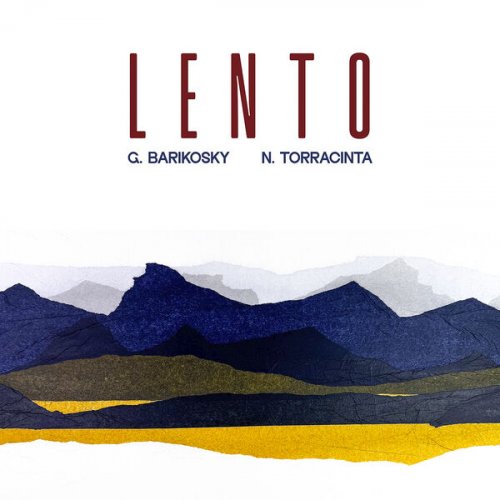Kronos Quartet - Released 1985-1995 (1995)

Artist: Kronos Quartet
Title: Released 1985-1995
Year Of Release: 1995
Label: Nonesuch
Genre: Classical
Quality: FLAC (image+.cue,log,scans)
Total Time: 01:39:48
Total Size: 477 Mb
WebSite: Album Preview
Tracklist: Title: Released 1985-1995
Year Of Release: 1995
Label: Nonesuch
Genre: Classical
Quality: FLAC (image+.cue,log,scans)
Total Time: 01:39:48
Total Size: 477 Mb
WebSite: Album Preview
CD 1: Released
01. Dumisani Maraire Mai Nozipo, for ngoma, hosho & string quartet ("Mother Nozipo") / 6:59
02. Astor Piazzolla Five Tango Sensations, for bandoneón & string quartet (abridgement and arrangement of Sette sequenze): Asleep / 5:27
03. Ben Johnston String Quartet No. 4 ("Amazing Grace") / 11:51
04. Steve Reich Different Trains, for double string quartet & tape: America - Before the war / 9:06
05. Henryk Mikolaj Górecki String Quartet No. 2 ("Quasi una Fantasia"), Op. 64: Arioso. Adagio cantabile / 7:29
06. Terry Riley Salome Dances for Peace, pieces (5) for string quartet: The Ecstasy [Excerpt] / 7:24
07. George Crumb Black Angels (Images I), for electric string quartet: God-music / 3:08
08. Arvo Pärt Fratres, for string quartet / 9:32
09. Philip Glass String Quartet No.5: Movt. 3 / 5:33
10. Tigran Tahmizyan A Cool Wind is Blowing / 4:02
11. Samuel Barber Adagio for strings (or string quartet; arr. from 2nd mvt. of String Quartet), Op. 11 / 7:16
CD 2: Unreleased
01. Raymond Scott Dinner Music for a Pack of Hungry Cannibals / 3:10
02. Scott Johnson How It Happens for String quartet: It Raged / 8:08
03. Michael Daugherty Elvis Everywhere / 8:24
04. Jimi Hendrix Purple Haze / 3:28
Kronos is a quality act. No quartet currently performing has done more to bridge the divide between popular and ‘serious’ music, and although others have served contemporary repertoire with equal dedication (the Arditti Quartet being among the most notable), Kronos take top laurels for imagination, presentation and an intuitive sense of what best ‘connects’ with a non-specialist music-loving audience. This superb retrospective is both representative and symbolic of their best work – representative in that the styles of voices are uncommonly wide; symbolic in that the planning of the disc, its telling juxtaposition of chosen material, actually reflects the compositional methods of certain composers programmed (I’m thinking, in particular, of Reich and Johnson). Having broadcast many of these tracks on Classic FM, I can attest to widespread public appreciation, especially of Reich’s Different Trains, Scott Johnson’s How it Happens, Gorecki’s Second Quartet, Glass’s Quartet No. 3 and Piazzolla’s Asleep. All spell ‘human interest’, touching the heart of a significant event or mood, whether via the inward sobbing of Gorecki (even more affecting than the Third Symphony), the motoric rail-rage of Reich or the gentle nostalgia of Piazzolla (with the composer himself on bandoneon).
“Released” opens with Dumisani Maraire’s breezy Mai Nozipo and goes on to include, among titles already mentioned, Ben Johnston’s prolix but engrossing quartet variations on Amazing Grace, an appealing extract from Terry Riley’s epic Salome Dances for Peace, Crumb’s mysterious God-music, Part’s ubiquitous Fratres (one of the work’s earlier recordings, originally released back in 1988), an eerie piece for duduk (a sort of Eastern-sounding saxophone) by Tigran Tahmizyan and then, to finish, a poignant return home to the familiar strains of Barber’s Adagio. All are superbly performed and very well recorded.
However, the real highlight of the set – at least for those of us who already own the albums from which “Released” has been compiled – is the relatively brief second disc “Unreleased”, starting with the upbeat hilarity of Raymond Scott’s Dinner Music for a Pack of Hungry Cannibals, then progressing to Scott Johnson’s humbling “It raged” from How it Happens (urgent dialogue centring on I. F. Stone’s reasoned arguments against the stupidity of ‘Holy Wars’), Michael Daugherty’s astonishing Elvis everywhere (three brilliant mimics, fragments of song and a tragicomic coda) and a raw-and-rowdy remake of Hendrix’s Purple Haze.
I hadn’t actually intended to spend 100 minutes listening straight-off, but was grateful for the opportunity of doing so, while Kronos themselves couldn’t possibly have wished for a more effective tenth-anniversary celebration of their collaboration with Nonesuch. There are no proper insert-notes on the music but, to be quite honest, the chosen selections are so vivid, so powerfully communicative, that written explanations would in any case have served little purpose. A remarkable achievement and essential listening for the as-yet uninitiated.'
“Released” opens with Dumisani Maraire’s breezy Mai Nozipo and goes on to include, among titles already mentioned, Ben Johnston’s prolix but engrossing quartet variations on Amazing Grace, an appealing extract from Terry Riley’s epic Salome Dances for Peace, Crumb’s mysterious God-music, Part’s ubiquitous Fratres (one of the work’s earlier recordings, originally released back in 1988), an eerie piece for duduk (a sort of Eastern-sounding saxophone) by Tigran Tahmizyan and then, to finish, a poignant return home to the familiar strains of Barber’s Adagio. All are superbly performed and very well recorded.
However, the real highlight of the set – at least for those of us who already own the albums from which “Released” has been compiled – is the relatively brief second disc “Unreleased”, starting with the upbeat hilarity of Raymond Scott’s Dinner Music for a Pack of Hungry Cannibals, then progressing to Scott Johnson’s humbling “It raged” from How it Happens (urgent dialogue centring on I. F. Stone’s reasoned arguments against the stupidity of ‘Holy Wars’), Michael Daugherty’s astonishing Elvis everywhere (three brilliant mimics, fragments of song and a tragicomic coda) and a raw-and-rowdy remake of Hendrix’s Purple Haze.
I hadn’t actually intended to spend 100 minutes listening straight-off, but was grateful for the opportunity of doing so, while Kronos themselves couldn’t possibly have wished for a more effective tenth-anniversary celebration of their collaboration with Nonesuch. There are no proper insert-notes on the music but, to be quite honest, the chosen selections are so vivid, so powerfully communicative, that written explanations would in any case have served little purpose. A remarkable achievement and essential listening for the as-yet uninitiated.'




![FŒHN - Soleil de Minuit (2026) [Hi-Res] FŒHN - Soleil de Minuit (2026) [Hi-Res]](https://www.dibpic.com/uploads/posts/2026-02/1770357244_gm1m1pna2mo8k_600.jpg)

![Puma Blue - Croak Dream (2026) [Hi-Res] Puma Blue - Croak Dream (2026) [Hi-Res]](https://www.dibpic.com/uploads/posts/2026-02/1770296276_il18cxkt8vg4a_600.jpg)
![Bobby Hutcherson - Components (1965) [LP] Bobby Hutcherson - Components (1965) [LP]](https://www.dibpic.com/uploads/posts/2026-02/1770471883_front.jpg)
